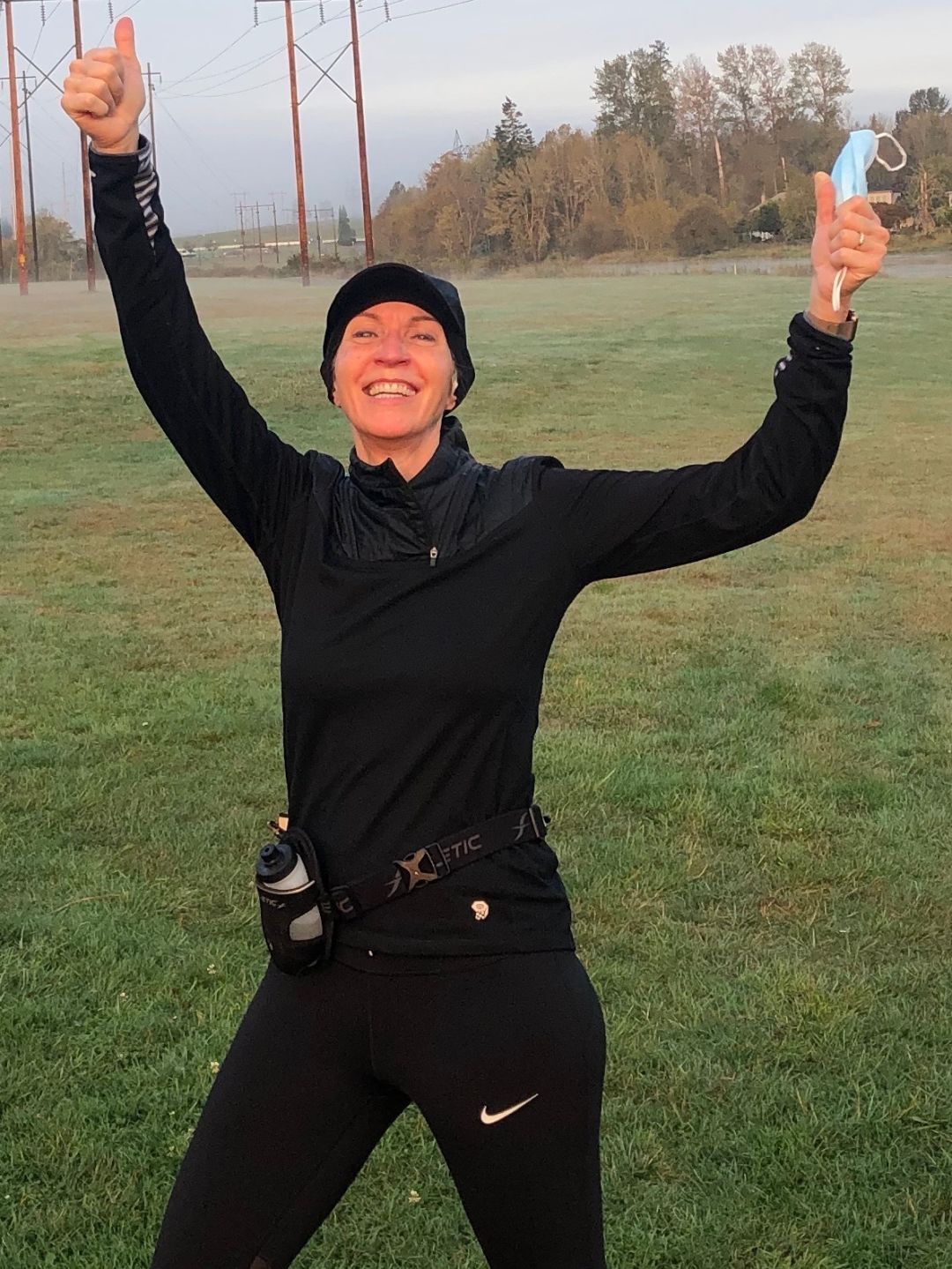Screening and Early Detection: One Breast Cancer Survivor’s Story

In addition to her highly integrated Kaiser Permanente care team, Babs Belk credits mental and physical self-care as key points in her cancer journey.
Image: Courtesy Kaiser Permanente
When Barbara (Babs) Belk received the news that she had breast cancer, she had no “Why me?” reaction and not a single second of fear. Instead, her response was calm and curious: “Huh. Tell me more.”
With three generations of cancer among women in her family, Babs, a Kaiser Permanente member and employee, suspected that this moment might come one day, and she was ready for it. Ready, because of her strong faith. And ready, because of her confidence in all that Kaiser Permanente has to offer, such as interconnected medical teams and systems that place the patient at the center for the best in care and compassion.
“Early detection prevented me from a more advanced diagnosis that would have required significantly more challenging treatment and recovery time, such as chemotherapy and radiation,” says Babs.
“It was incredible to have Kaiser Permanente reach out to remind me that I needed a mammogram. The process between detection and surgery to prevent the cancer from invading my pectoral wall and lymph nodes and removing all cancer cells took place very quickly.”
She describes her extensive team of nurses, cancer specialists, surgeons, and anesthesiologists—as well as a cancer navigator, phlebotomists, imaging techs, and many others—as “an incredible machine with heart and soul. They treated me with love, kindness, and embraced my humor. I knew I was in excellent hands.”
Screening and Diagnosis
Her journey began on May 28, soon after Kaiser Permanente began reopening clinics and services that had been temporarily closed in the early weeks of the COVID-19 pandemic.
Babs received a phone call that she was due for a mammogram and there was an opening the next morning, which she took. Then, on June 7, she had a sonogram and breast biopsy, followed a few days later by a call informing her of her diagnosis of breast cancer. That same week, she had an MRI and met with her surgeon, Brenda Schmidt, MD.
“My surgeons discussed options, answered my many questions and concerns, and valued my opinions throughout the journey,” says Babs. “My nurses gave me easy-to-follow checklists that ensured I was prepared before and after surgery. Because of the connections between all of my care providers, in subsequent appointments I didn’t have to repeat everything—they were all up to date on my progress.”
Just six weeks after diagnosis, Babs had a double mastectomy at Kaiser Westside Medical Center in Hillsboro, Oregon. Four weeks after that, Alex Gougoutas, MD, performed Babs’s first reconstructive surgery. She is receiving bimonthly procedures and will have a final surgery in December or January.
In Her Words: Lessons from a Survivor
“Any type of cancer diagnosis is life-changing and often a long, painful journey. Although it is a very challenging experience for those of us diagnosed, it is also challenging for family members and our friends.
“It’s important to lean into healthy practices for mind, body, and spirit, which are grounding and comforting throughout the journey. My strong faith gave me comfort from the first moment, as I had no fear or anxiety about the cancer diagnosis. I stayed closely connected to my husband, sisters, and closest friends for support and prayer. I continue to meet by phone with a wonderful therapist who is part of the Kaiser Permanente oncology therapy team.
“Running has been a great stress reliever and joy for me. Shortly after my first surgery, while I couldn’t run, I was able to walk several miles a day, which helped me feel ‘normal’ and healthy throughout the process. I also eat predominantly a plant-based diet. All of these practices helped me to heal very quickly.
“Finally, it’s important to educate yourself about your diagnosis and ask as many questions as you need. It is not easy, often painful, and comes with many physical sacrifices. The more I knew, the better prepared I was to be patient with the many physical limitations, learn to ‘breathe’ through and distract myself from the pain, and know that I would get through it.”
Now doing exceptionally well, Babs thrives by jogging and cherishing time with her family and friends. She’s passionate about inspiring others who may be going through breast cancer or know someone who’s facing a similar diagnosis. And her experience has encouraged her to share the importance of early detection.
“Please make time to get timely cancer screenings,” she says. “This includes mammograms for breast cancer, as well as screenings for colon cancer and prostate cancer. Taking these steps not only can make your diagnosis outcomes better, but can literally save your life.”
To learn more about Kaiser Permanente’s cancer program, visit kp.org/cancer/nw.




